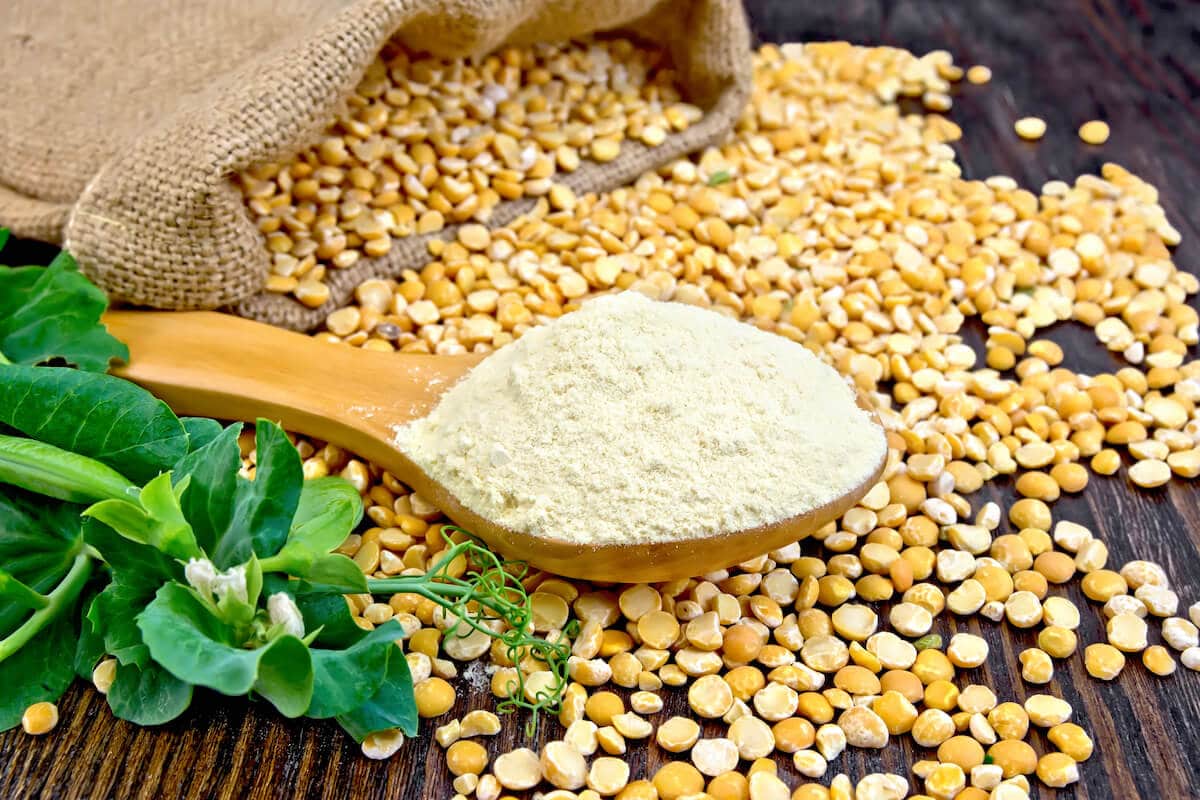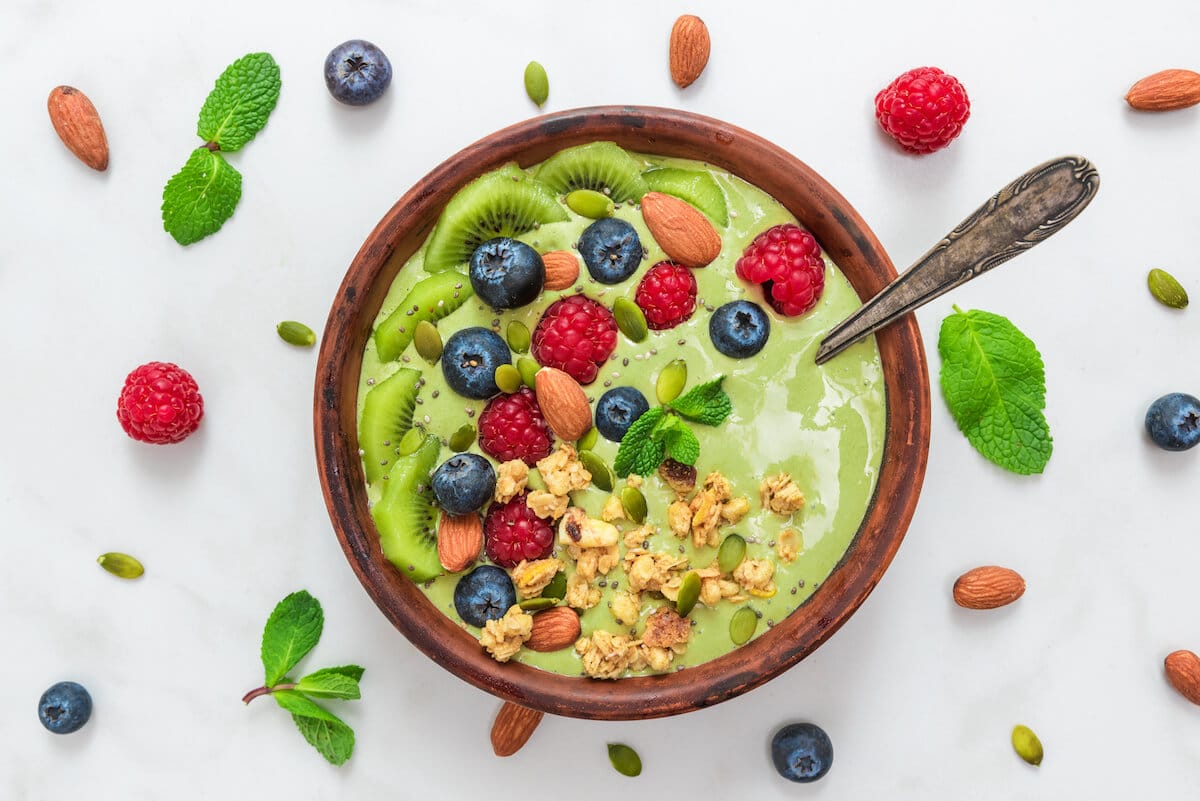
10 Sep How Is Pea Protein Made and Why Do You Need It?
Take a trip down the supplement aisle of your local retail outlet, and you may find your head spinning by the variety of protein powders available on the market. With an assortment ranging from whey, casein, and collagen to soy, rice, and hemp protein powder, where exactly does pea protein fit into the mix? And how is it made?
Pea protein comes from field peas (rather than sweet green peas). With minimal processing, it can be turned into pea protein powder, which is an excellent source of protein for anyone who cares about their health and/or environmental sustainability.
Let’s explore how pea protein is made and why you may need it. We’ll also help you understand how it’s different from other proteins, and what to look for when you’re buying it. After all, quality makes all the difference.
How Is Pea Protein Made?
Pea protein powder is made from yellow split peas (Pisum sativum). First, the outer shells are mechanically removed before the peas are ground and milled into a flour containing protein, starch, and soluble fiber. The flour goes through a wet filtration process and is centrifuged to remove the starch and fiber, leaving behind a paste of protein, vitamins, and minerals. The paste is then dried further, resulting in pure protein in the form of a white powder, known as pea protein isolate.
Pea protein isolate is often added to products like bread, cereals, ready-made meals, and protein bars, as well as sports nutrition products.
Why You Need Pea Protein
Protein is an essential macronutrient that your body needs for many different functions. It provides the structural framework for all your body tissues, including your cells, organs, bones, muscles, hair, skin, eyes, and nails. It also boosts your immune system and is involved in producing enzymes and hormones, as well as many other chemical reactions in your body. Without protein, you couldn’t survive.
In order to use the protein you consume, your digestive system breaks down protein into amino acids. While your body can make some amino acids, nine of the 22 amino acids it needs can only come from food. And of those nine, the three branched-chain amino acids (BCAAs) — leucine, isoleucine, and valine — are the most critical for building and maintaining muscle.
How Much Protein Do You Need?
The human body needs a minimum amount of protein every day, as it can’t store protein, unlike the other macronutrients (carbohydrates and fats). If you’re generally healthy but not physically active, you may be able to get enough protein from whole foods.
However, if you’re an athlete involved in intensive training or a bodybuilder focusing on muscle growth, you may need extra, high-quality protein every day. You can also benefit from additional protein when you’re recovering from an illness or losing muscle mass as you get older, or if you simply need a boost of energy to thrive in your busy life. In these cases, a pea protein supplement can be useful to top up your protein intake.
Where to Get Protein in Your Diet
You can get the protein you need from many different sources. Animal protein sources include meat, poultry, fish, and dairy. Good plant protein sources are beans, peas, lentils, soy, hemp, quinoa, and nuts.
Animal proteins are usually “complete proteins,” containing all nine of the essential amino acids we need. However, many plant sources are “incomplete proteins” and should be combined with other foods over the course of the day to ensure you get the full amino acid profile you need.
Unlike other plant-based proteins, pea protein contains all the essential amino acids that your body needs, which makes it an excellent plant-based source of high-quality protein. However, pea protein is slightly low in an amino acid called methionine, but this is easy enough to get from many common whole foods like eggs, fish, turkey, and Brazil nuts.
Why Choose Pea Protein Powder Over Other Protein Supplements?
There are many protein powder supplements available in brick-and-mortar retail outlets and online stores. Some of the most popular are whey, casein, and soy.
Whey and casein are both made from dairy. The amount of lactose they contain varies depending on how they are processed, with whey protein isolate containing the least. Both forms are still dairy-based and may cause side effects like bloating, gas, or other digestive discomforts for anyone suffering lactose intolerance. Additionally, casein and whey protein powders aren’t suitable for anyone who prefers not to consume dairy due to health or ethical reasons.
Like pea protein, soy protein is also a complete plant protein. However, not only are some people allergic to it, but soy is also the subject of controversy because it contains isoflavones. While the research on soy is conflicting, isoflavones may pose a risk for people with certain health conditions, as it’s possible they interfere with estrogen receptors.
Pea protein powder, on the other hand, is a vegan protein. As such, it’s regarded as more ethical and sustainable than animal products. It’s non-allergenic because it doesn’t contain any common allergens like dairy or soy, and pea protein is naturally gluten-free. Furthermore, it’s high in lysine, which is essential for tissue growth and recovery.
Most pea protein powder is also highly digestible. The processing removes carbs, as well as anti-nutrients like phytates and lectin, which inhibit the absorption of nutrients and are suspected to contribute to legume allergies and digestive issues.
High-quality products like Ingredient Optimized ioPea Protein take pea protein powder to the next level. ioPea has been clinically proven to be three times more bioavailable than non-optimized pea protein. In fact, it’s the first plant protein to deliver comparable absorption to whey.
Benefits of Pea Protein Powder

As a high-quality, vegan, and sustainable alternative to other protein supplements, pea protein — and especially the industry-leading ioPea Protein — has many benefits. Here are some of the other advantages of pea protein:
- Boosts your energy for everyday tasks, as well as for intensive exercise
- Builds muscle protein, especially lean muscle, when combined with resistance training
- Increases satiety, helping you to feel full for longer, which is important if you’re managing your weight
- Supports heart health and blood flow, as it’s high in arginine
- Helps to manage high blood pressure
- Helps to manage cholesterol
It’s worth noting that ioPea’s high digestibility makes it suitable for children and older adults, as well as anyone recovering from an illness or needing to rebuild muscle.
However, if you have an allergy to peas or an existing health condition, check with a dietitian or medical practitioner before adding pea protein powder to your diet.
How to Choose a Pea Protein Powder

When you’re choosing the right pea protein powder for you, be sure to read the list of ingredients and check the product website. You’re looking for a pea protein that is free of unnecessary additives, like:
- Artificial colors and flavors
- Sugar
- Artificial sweeteners — natural sweeteners like stevia or monk fruit are fine
- Fillers
- Emulsifiers
- Soy
- Dairy
- Gluten
- Pesticides
- Heavy metals
Also, check how much protein the powder actually contains. Whether it’s pure pea protein or an optimized blend, like Performix ioPlant or Kaged Muscle Plantein, a serving should provide at least 20 grams of protein.
Note that you shouldn’t aim to get all your protein from pea protein (or any other protein supplement for that matter). Your body needs a range of foods, over the course of the day, to get all the nutrients it requires.
High-quality pea protein powder easily blends into other foods (watch out for low-quality products, which can be gritty) and it has a fairly neutral taste that you shouldn’t notice. Mix it into your protein shakes or smoothie bowls, or add pea protein to your yogurt, oats, stews, soups, or sauces to give your protein intake a substantial boost.
Should You Use Pea Protein Powder?
Pea protein powder is an excellent source of high-quality protein for anyone looking after their health, training intensively, or trying to build muscle mass. It’s highly digestible and suitable for vegans, as well as those with lactose or glucose intolerance.
ioPea protein is made with your health in mind. If you need convincing, try it for a while and see how your body feels. You may be glad you did!


